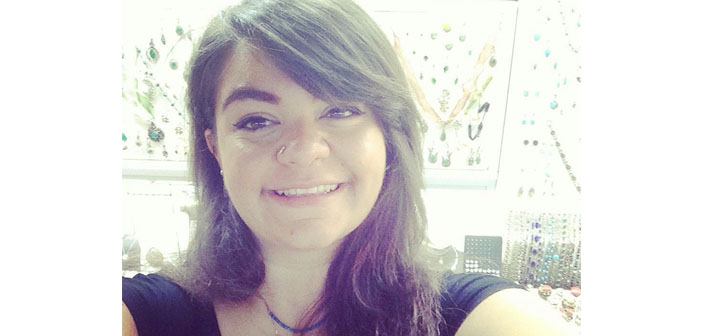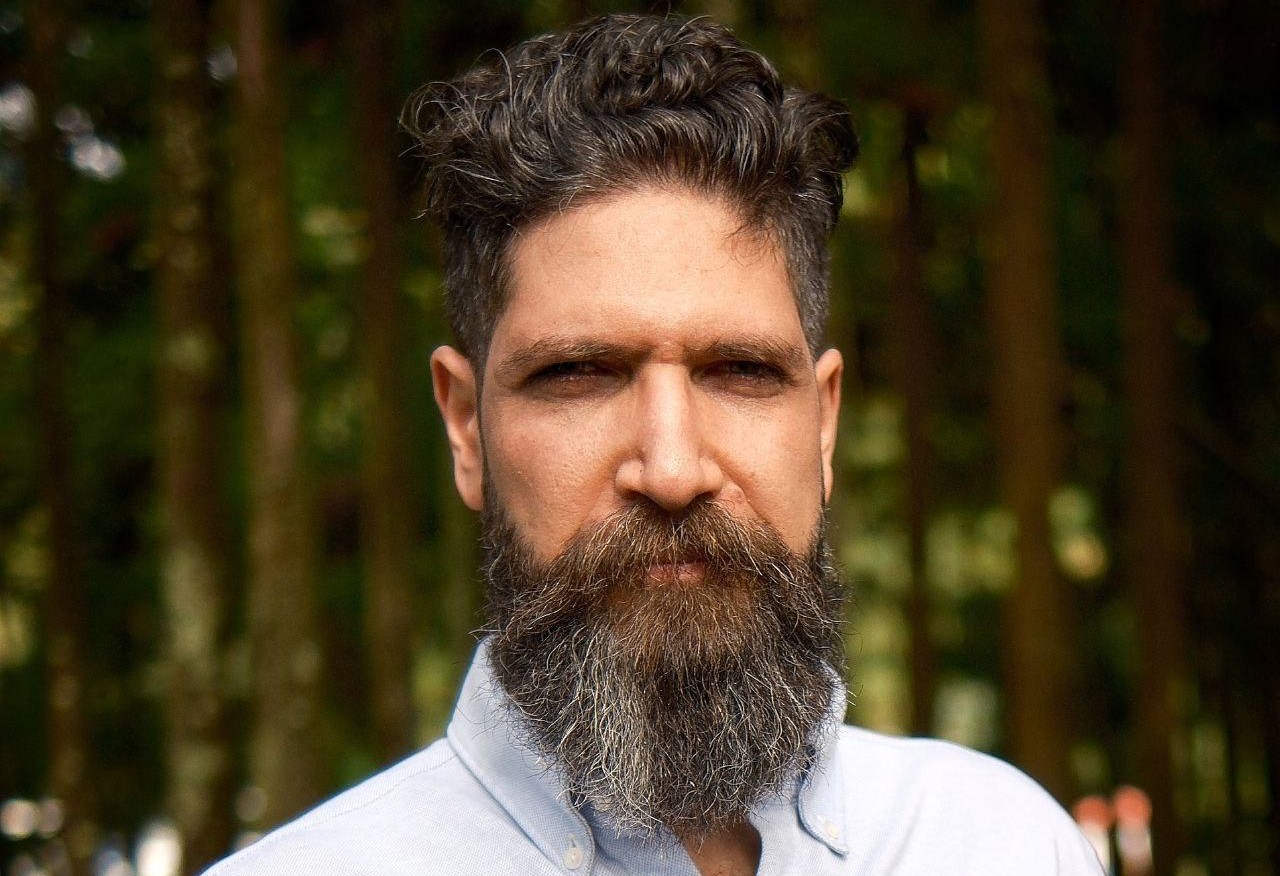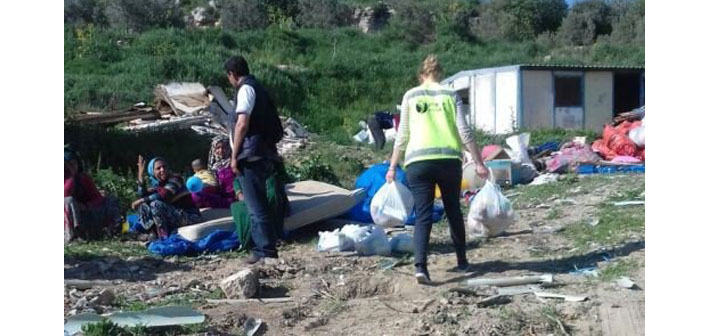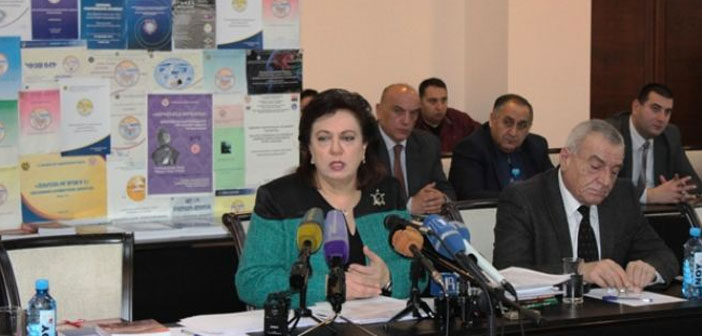21 years old law student Claudia Brounsouzian first went to Mersin with her mother. Then, she went to Cyprus and tried to go to Europe from there. However, she couldn’t have managed to go to Southern Cyprus and because of that, she returned to Turkey; but this time, she went to İzmir. We talked to Brounsouzian about her story of migration from Aleppo to Turkey.
The war in Syria continues to displace people from their homes and make them to search for a new life in different countries. The Syrian refugees see Turkey in particular as the only gateway for going to Europe. That is why the number of the refugees in Turkey increases day by day. Some of them try to lead their lives in Turkey and some others seek for ways to immigrate to Europe with the hope of a new life. 21 years old Claudia Brounsouzian, who came from Aleppo to Turkey in search for refugee, belongs to the latter group. After going to Mersin with her mother, she went to Cyprus in order to go to Europe. However, she couldn’t have managed to go to Southern Cyprus and because of that, she returned to Turkey; but this time, she went to İzmir. We talked to Brounsouzian about her story of migration from Aleppo to Turkey.
Her father Nishan Brounsouzian and her brother George sent Claudia and her mother to Turkey 3 years ago, promising that they will come after them later. Their first destination was Taşçu district of Mersin. Claudia didn’t want to stay in Mersin any longer because of the poor conditions there and after three months, she went to Cyprus with her mother Dalida Brounsouzian: “When we went to Cyprus from Mersin, our purpose was to go to Southern Cyprus in order to go to Europe from there, but things didn’t go as we planned and we couldn’t have managed to go to the south.”
When they couldn’t have gone to Europe…
When Brounsouzians weren’t allowed to go to Southern Cyprus, they resorted to going to İzmir this time. Claudia Brounsouzian says that their life in İzmir is better than their life in Cyprus, she has a job there and thus, she can provide for both herself and her mother: “After Cyprus, our first destination was İzmir and we are here for one year now. I can say that our life here is better compared to the lives of the other Syrian refugees, because I have a job and I earn money. Of course I don’t have a comfortable life, but I feel grateful when I see the other Syrians in the streets. The fact that I can speak seven languages is the only reason for this. If I weren’t speaking any foreign languages, no one would have hired me. As a matter of fact, language, ill-communication is the main problem of the Syrians.”
Stating that she came to Turkey with her mother when the war erupted and that her father and brother told them they will come after them later, Brounsouzian says that they’ve never heard of them since then: “My mother is here with me, she doesn’t work. Back in Syria, she was writing columns in newspapers, she was a columnist. And my father was a mechanical engineer. He got lost during the war, because we are Armenian and Christian. First, I came to Turkey with my mother. My father and brother sent us ahead, they were to come later, but we haven’t heard of them since we came to Turkey. The last time we received any news from them, they told as that they died because of a car explosion. After that, we didn’t want to dwell on it and tried to go back to Syria to receive information regarding my father, but we couldn’t have gone, because the roads were closed. So, we accepted the fact that they are dead. I was way worse three years ago, only now I can find the strength to talk about these.”
One year more
Stating that she was studying law in Syria, Brounsouzian says that she completed her third year in the school, but couldn’t continue her education because of the war and she wants to continue studying law in İzmir: “In fact, I have to go to university, I studied law for three years, but I had to suspend it because of the war. I have to work here. I might study at 9 Eylül University, I am looking for scholarships, and I guess I will continue my education there. As far as I know, there is a test and if you pass that test, you can resume your education. However, it will be difficult for me anyway, because I have to continue working to pay our rent. Now, I sell silver in a shop and we muddle on. If I continue my education, I will work part time and my salary will be the half of what I earn now, so it won’t be enough to live off. I want to continue my education, because I have only one year left. I might postpone it though, since I don’t know how I can manage to live off during that one year.”
Stating that they went to Istanbul soon after they arrived at Izmir and tried to make contact with the Armenian community there, Claudia Brounsouzian says that the attitude of the Armenians in Istanbul made them uncomfortable: “There is no Armenians in Izmir, we had difficulty in finding a church. We went to Istanbul, but no one welcomed us. Some of them even avoided us, worrying that we will ask them for money. We were disappointed and went back to Izmir. Here, no one minds the fact that I am from Syria and I am Armenian; I can say that I feel better here. Since my mother is sick, her medication and the rent is our only expense, except from that, we can muddle on with my salary.”
A helping hand for the Syrians
Claudia Brounsouzian is also a board member in the Syrian Solidarity Association in Izmir, which was founded to help Syrian refugees in Izmir. President of the association Muhammad Salih Ali informed Agos about the Syrians in Izmir and the association. Pointing out that there are more 100.000 Syrian refugees in Izmir, Salih Ali says that they thought that such an association is necessary after the number of refugees in Izmir increased and they founded the Syrian Solidarity Association in Izmir in line with this need: “After the war, the number of the Syrians in Izmir increased and we were concerned how these people will direct themselves to the state and whom they will contact to, so we founded the association two years ago. We help the incoming Syrians to find accommodations and jobs. The large companies which know about us inform us when they need employees and we refer them to the Syrians. Some benefactors provide financial support and we disburse these donations to the best of our ability. Communication is one of the most important problems. Since most of the Syrians don’t speak Turkish, we act as interpreters for them.”





